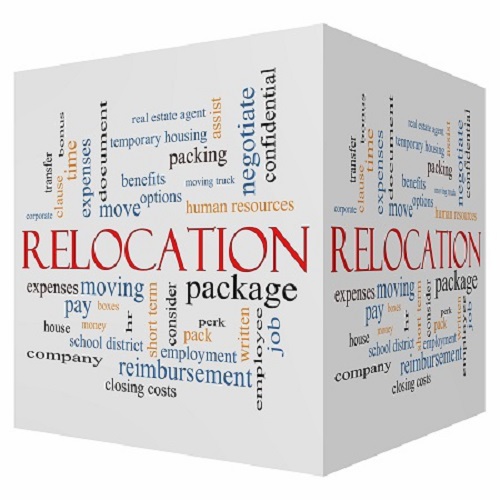February 24th, 2017
 The following is the second in our series focusing on providing information on the various types of office space available, from business parks to hot desking, conventional office accommodation to shared coworking options.
The following is the second in our series focusing on providing information on the various types of office space available, from business parks to hot desking, conventional office accommodation to shared coworking options.
What is a startup?
Before discussing the qualities of a startup space or incubator, it is worth determining exactly what a startup is.
Theoretically, any new business whose market is not defined by location could be considered a startup. (For example, a newly opened restaurant is indeed a small business, but, because the market is location based, it is not a startup.)
In terms of use in today’s economy, a startup is a small business, usually technology oriented; startups generally provide service to a worldwide market. Tech startups are not confined by location or operating hours only by how many consumers or clients they can reach.
Incubators
In the non business world, an incubator is a warm safe place for a baby or a baby chick to get a nice healthy start to life. In the business world, an incubator is much the same. Incubators provide services that help startups get through those trials faced by new businesses.
Services
Some of the services provided by incubators are:
- Legal: things like proprietary guidelines, creating bylaws or business plans, and navigating the regulations of your industry.
- Business management: basic accounting services, business organization tips, company setup, and help with building and framing the identity of your startup.
- Marketing: market research and networking.
- Funding: access to angel investors or venture capitalists and help in locating other sources of funding for your startup.
- Networking: introduction to others in your industry, networking with mentors, investors, and industry specialists.
- Site services: an office or team workspace, access to high-speed internet, copying and faxing, and other clerical or administrative services. Read the rest of this entry »
Tags: business incubators, Office Rental, office space options, startups, USA
Posted in Business Advice, Business Start Ups, Office Space Options Series | No Comments »
Add to: Del.icio.us | Digg
May 4th, 2016
 What is considered acceptable use of social media in the modern workplace? How can what you post on social media both in and out of the office be used against you?
What is considered acceptable use of social media in the modern workplace? How can what you post on social media both in and out of the office be used against you?
Although in many cases U.S. laws and regulations have not kept pace with all the latest developments, legislators and employment specialists have become increasingly aware of the issues. Facebook has over one billion users, with Twitter boasting around 500 million – and LinkedIn around half that.
Understandably, many employers were reported as having noted this tendency with some degree of alarm, voicing fears such as reduced productivity, adverse publicity and a possible trend in work-related claims and liability. Some have wondered about their rights to ban social media usage in the workplace – yet these same employers have seen their levels of businesses grow in many cases due to social media’s innate ability to market products and services to new customers. Companies also hire bloggers, endorsers or community managers to take advantage of the phenomenon.
In addition, employee morale is usually higher with access. What is clear, however, is that social media policies are just as important an area as any other (such as vacations, special leave and anti-discrimination) in contracts of employment and the general relationships between employers and employees.
As social media developed, some government agencies began issuing guidance. While some of this has been based on common sense and an intuitive approach, other examples have been less so. Specifically, some NLRB (National Labor Relations Board) pronouncements on the subject have been viewed as self-contradictory and confusing. The NLRB has received most of its press attention for supporting the employee right of engaging in concerted activities. Here, one key test is whether any one employer policy would reasonably have the effect of distressing employees; such clauses are deemed invalid in employment contracts. The Equal Employment Opportunities Commission (EEC) has also taken an interest in the question. Read the rest of this entry »
Tags: Business Advice, Social Media, USA-Employee-Rights, Workplace Regulations
Posted in Business Advice, Employee Rights, Employment and Worklife, Employment Regulations, Office-code-of-conduct | No Comments »
Add to: Del.icio.us | Digg
January 19th, 2016
 No matter what type of business you run, technology will play a large part. One of the best ways to keep up to date with the latest tech available to help grow and improve your business is to attend conferences, workshops and events where you can check out numerous tech companies and applications that relate to your particular industry all under one roof.
No matter what type of business you run, technology will play a large part. One of the best ways to keep up to date with the latest tech available to help grow and improve your business is to attend conferences, workshops and events where you can check out numerous tech companies and applications that relate to your particular industry all under one roof.
Here is a list of just some of the technology conferences being held in the US in 2016. Read the rest of this entry »
Tags: 2016, Conferences, Tech, Technology
Posted in Business Advice, Conferences, Meetings, Presentations, Technology | No Comments »
Add to: Del.icio.us | Digg
November 30th, 2015
 Appetizer-Only Party
Appetizer-Only Party
Similar to a Holiday Party where folks bring festive cookies or a main dish for the potluck, you can hold an appetizer-only potluck. Simply invite people to bring their favorite holiday appetizer. The office can provide soft drinks, bottled water or coffee. Of course, cookies are allowed and always welcomed! But mostly, this is an appetizer-only party simply to try something new for the holidays. Don’t forget the decorations!
Christmas Classic Movie Marathon
For this type of office party, try a Christmas Classic Movie Marathon. Mix it up with a few movies from different decades like Christmas Vacation, A Christmas Story, Elf, White Christmas, Ernest Saves Christmas or Four Christmases. Provide a place with a viewing screen so folks can pop in and out while they’re working, and if possible, provide popcorn and other snacks, or have a potluck. If a work day party is not possible, try to schedule something off work hours at someone’s house. The point is to have fun.
Pet Holiday Photo Contest
Because cats, dogs, bunnies and other pets look adorable dressed as Santa, angels, elves, reindeer and the like, why not throw a party with a contest for folks who share photos of their beloved family pets dressed in holiday getups? Imagine a bunch of grown ups gathering to show off their puppies and kitties? If you’re so inclined, you could set up a screen in a viewing room so people can vote live from Facebook or Flickr. The prizes can be very simple, like cat toys or a dog bone or gift certificates. Read the rest of this entry »
Tags: Christmas, Office Party Ideas, Office-tips
Posted in Business Advice, Christmas, Office Relations | No Comments »
Add to: Del.icio.us | Digg
November 12th, 2015
Entrepreneurs and new businesses in the south are encouraged to relocate to Georgia and North Carolina, as Greensboro, Augusta and Columbus feature in a recent article from USA Today which highlights the best cities for new start ups. The article discusses the best and worst cities for new business start ups and you may be surprised to learn that New York and Los Angeles may not be the best locations for budding entrepreneurs. Dollars may be floating around some of the multinationals and Silicon Valley corporations but many new businesses struggle to make a name and income in these locations, while quality of lifestyle is also a major consideration.
Reasons Augusta, Columbus and Greensboro are the Best Cities to Start a Business in the South USA
You’ll find multinationals, major hospitals, world leading research institutes, universities and hosts of SMEs situated in Augusta, Columbus and Greensboro, with plentiful opportunities for any new business and less expensive office/retail locations than cities like New York or LA. Local chambers of commerce provide generous support and networks for added support once your business is operational.
Greensboro
Starting up in Greensboro allows you to pull in customers from the surrounding areas of Kernersville, Summerfield and High Point, while the thriving city population totals almost 300,000. The local Chamber of Commerce runs free seminars from the Center at Guilford Technical College, with added courses, workshops and seminars at a variety of locations, including the Nussbaum Center and the Con. Ed. Center. You can source advice and information from the Chamber, and the structured workshops give any budding entrepreneur all the advice and information required to start up a successful company.
Augusta
Augusta has one of the largest medical conurbations in the States and is also home to the Dept. of Energy nuclear facility based on the Savannah River. A number of multinationals are located in the neighborhood, while near by Fort Gordon is home to the Army Signals. Census figures show the 2012 Augusta population to be around 200,000. The Downtown Development Authority 2008 guide to starting up a new business is available for free download, while StartUp Augusta is a LinkedIn mentoring service offering support to local business startups via its online community. Read the rest of this entry »
Posted in Best Cities for Business in the USA, Business Advice, Business Spotlights, Business Start Ups | No Comments »
Add to: Del.icio.us | Digg
May 25th, 2015
 Overview of Business in Denver
Overview of Business in Denver
Over the past few years, Colorado’s capital city has been making great progress in diversifying its economic base, attracting an increasing number of new businesses in a variety of industries. As a result, Denver is currently considered one of the key commercial real estate markets to watch. A survey published by the Denver Business Journal in 2014 revealed that more than half of the interviewees gave a good rating to the city’s office and retail property market, classifying them as definite ‘buys’. The same report cites industrial diversity as one of the most attractive features of the local economy and as the principal driver of business in the city. These factors have positioned Denver as one of the best US cities for small-sized businesses, as the city ranks as high as New York and Miami in terms of business per capita, industry variety, and net growth.
Major Industries and Key Economic Drivers in Denver
Since the 1990s, new technologies have been driving growth in the local economy. High-tech companies are mainly clustered around the business parks located to the northwest of the city centre, such as the Westmoor Technology Park, Centennial Valley, and the Interlocken Advanced Technology Park. According to Forbes, over the past five years industry sectors like renewable energy, telecommunications, and aerospace have grown in importance and now constitute key economic drivers for the local economy. Read the rest of this entry »
Tags: Colorado, Denver
Posted in Business Advice, Business Spotlights, Business Start Ups | No Comments »
Add to: Del.icio.us | Digg
April 13th, 2015
 When a company decides to relocate to a new location, whether they are an SME or a corporate giant, the relocation project can be complex. Whether a business relocates in-state, across the country or internationally, it requires a team of planners with diverse skills and experience to accomplish a smooth, seamless relocation process.
When a company decides to relocate to a new location, whether they are an SME or a corporate giant, the relocation project can be complex. Whether a business relocates in-state, across the country or internationally, it requires a team of planners with diverse skills and experience to accomplish a smooth, seamless relocation process.
In addition to the actual relocation planners involved, there are often additional teams of assistants that are required. These include:
- Personnel and human resources experts and recruiters
- Corporate legal advisers
- Real estate managers and supervisors
- Tax and/or CPA specialists
- Environmental consultants
These are a few of the teams needed to accomplish relocation with minimal disruption.
The size of a company will relate to the size of the relocation project and amount of planning. There is much less involved in relocating a law firm comprised of a half dozen employees than a research laboratory with two dozen research personnel and administrative associates.
Small to moderately sized offices are generally easier to relocate than manufacturing and retail facilities with several detached buildings in the facility’s complex. Read the rest of this entry »
Tags: Business Advice, Company Relocation, Office Organization
Posted in Business Advice, Company Relocation, Office Organization | No Comments »
Add to: Del.icio.us | Digg
March 31st, 2015

Overview of Business in Manhattan
For decades, Manhattan has been a global business hub of undisputed prestige. This New York borough is home to some of the world’s most successful businesses and to the largest stock exchange in the world. Manhattan has repeatedly topped the global lists of most powerful cities, staying ahead of other leading business hubs like London, Dubai, Hong Kong, or Shanghai. Due to its excellent infrastructure, world-class business environment, and valuable human capital, Manhattan is the world’s most desirable business location . The borough’s thriving business scene is a catalyst for economic growth, and this is reflected in the local employment levels. According to the NYCEDC, more than 310,000 jobs are based in this borough, tens of thousands of which have been created in the private sector since 2005.
Major Industries
The banking and financial sector is the key economic driver for the local economy. More than 300,000 people are employed in this industry, which according to the Federal Reserve generates more than 35 per cent of the city’s income. The service sector is another key industry in Manhattan, as it employs over 1 million people in areas like tourism (over 240,000 jobs), professional and business services (287,000 jobs), or healthcare and social assistance (208,000 jobs).
The number of technology, advertising, media, and information companies (TAMIs) has skyrocketed since 2009. Back then, TAMIs barely occupied 100,000 square feet of space in Manhattan, but at the end of 2014 that figure had increased to more than 1.6 million. A report published by the Downtown alliance estimates that this sector is comprised of over 800 firms that generate a combined annual output of $125 billion and that employ nearly 29,000 people. Likewise, Manhattan has recently been attracting a steady number of creative firms. According to an article published at the Wall Street Journal, the number of employees working in creative ventures in this part of Manhattan has increased by 71 per cent over the past five years. Read the rest of this entry »
Tags: Business Advice, Business Start Ups, Manhattan
Posted in Business Advice, Business Spotlights, Business Start Ups, New York | No Comments »
Add to: Del.icio.us | Digg
February 24th, 2015
 Overview of Business in Los Angeles
Overview of Business in Los Angeles
A variety of industries help to make Los Angeles the successful economic center that it is. The city attracts businesses in the tourism, TV/film, hospitality and technology industries. These are not the only industries that thrive in the city, however. Traditional industries like law, finance and medicine also create jobs for residents in the city. Young professionals are attracted to the opportunities presented by the technology, medical and information industries.
International trade is also a major driver of the economy of Los Angeles, with its twin ports handling more than forty percent of both inbound and outbound containers for the whole country. More than one hundred and sixty thousand workers support the international trade sector in L.A. county.
Major Industries & Key Economic Drivers in Los Angeles
Technology continues to be a driving force behind the economy in L.A. and a number of major tech companies have their corporate offices in city and its surrounding areas. The information industry continues to provide numerous job opportunities for young graduates, in particular, the film and video gaming industries. The biotech industry is also combining with the information industry to create new applications that are beneficial for the health of society. Read the rest of this entry »
Tags: Business Advice, Los Angeles
Posted in Business Advice, Business Spotlights, Business Start Ups, Los Angeles | No Comments »
Add to: Del.icio.us | Digg
February 12th, 2015
 The city of Boston has histrorically had a reputation for its international ports and its textile manufacturing industry. Manufacturing in general has dropped in the US over the years, however while the textile manufacturing industry still remains very strong in Boston, other industries have become more dominant in the last 20 years, and Boston continues to be a viable economic center that is still experiencing growth.
The city of Boston has histrorically had a reputation for its international ports and its textile manufacturing industry. Manufacturing in general has dropped in the US over the years, however while the textile manufacturing industry still remains very strong in Boston, other industries have become more dominant in the last 20 years, and Boston continues to be a viable economic center that is still experiencing growth.
Major Industries in Boston
The economy in Boston has seen a shift away from textile manufacturing and more towards technology manufacturing and service industry jobs. The major industries in Boston can be broken down into the urban industries and the suburban industries. In the city of Boston itself, the primary industries are finance and professional services. The city also contains much of Boston’s technology manufacturing as well.
The suburban areas of Boston rely primarily on technology manufacturing and national defense. The outlying areas of Boston are populated with a wide variety of skilled technical workers and military bases. Read the rest of this entry »
Tags: Boston, Business Advice
Posted in Boston, Business Advice, Business Spotlights | No Comments »
Add to: Del.icio.us | Digg
 The following is the second in our series focusing on providing information on the various types of office space available, from business parks to hot desking, conventional office accommodation to shared coworking options.
The following is the second in our series focusing on providing information on the various types of office space available, from business parks to hot desking, conventional office accommodation to shared coworking options. What is considered acceptable use of social media in the modern workplace? How can what you post on social media both in and out of the office be used against you?
What is considered acceptable use of social media in the modern workplace? How can what you post on social media both in and out of the office be used against you? No matter what type of business you run, technology will play a large part. One of the best ways to keep up to date with the latest tech available to help grow and improve your business is to attend conferences, workshops and events where you can check out numerous tech companies and applications that relate to your particular industry all under one roof.
No matter what type of business you run, technology will play a large part. One of the best ways to keep up to date with the latest tech available to help grow and improve your business is to attend conferences, workshops and events where you can check out numerous tech companies and applications that relate to your particular industry all under one roof.




